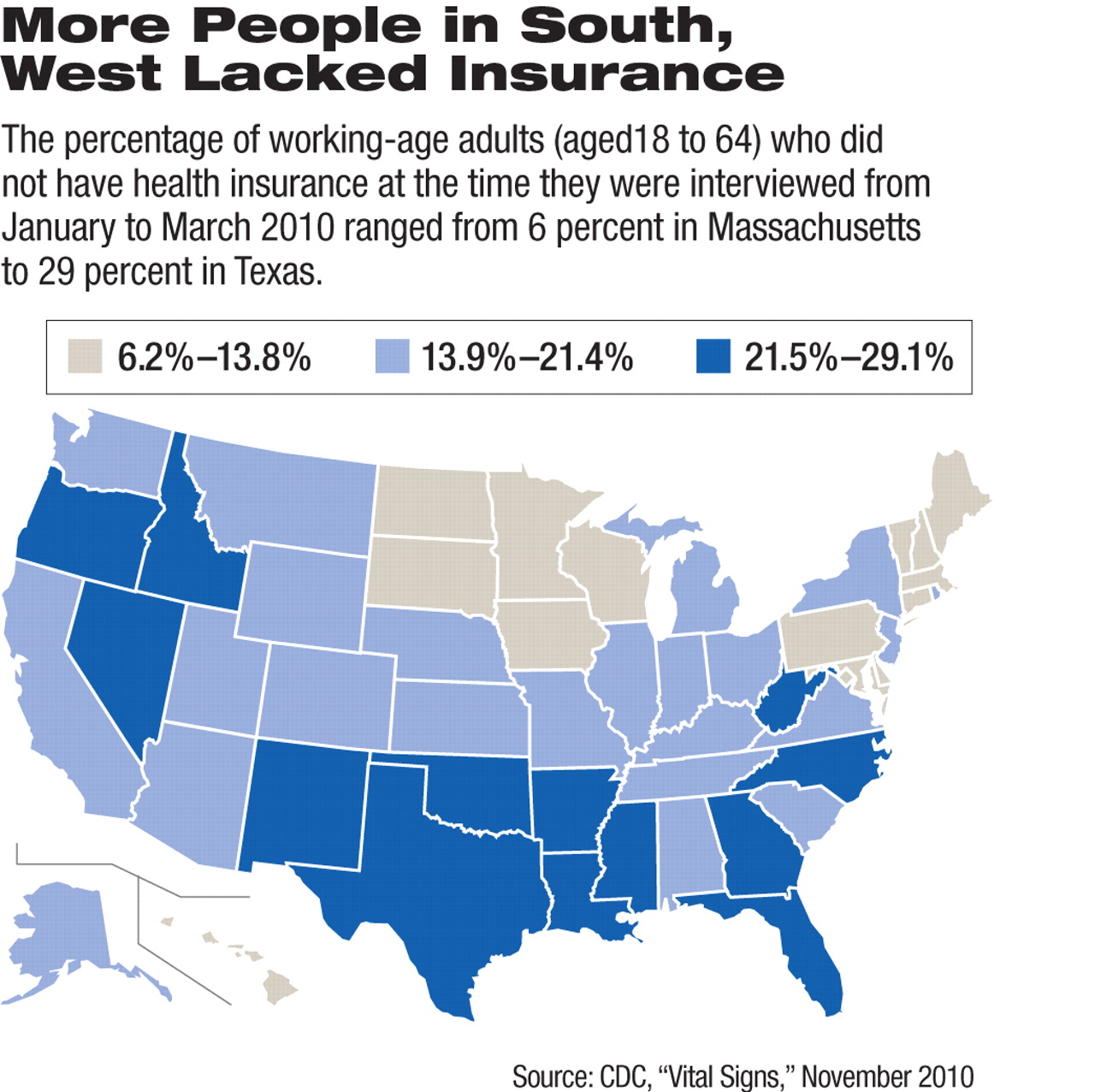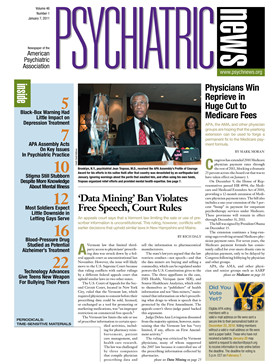A record number of Americans reported lacking health insurance coverage at some point in the preceding 12 months when they were surveyed from January to March 2010, according to a report by the Centers for Disease Control and Prevention (CDC).
That number was 59.1 million, a 400,000 increase over numbers from the 2009 CDC report.
Moreover, the number of Americans who were uninsured for at least part of 2009 increased by nearly 3 million over the 2008 figure of 56.4 million. People in all income brackets have been affected, not just adults living in poverty, said the CDC.
The data were based on telephone interviews with a nationally representative sample.
“[M]illions of Americans have limited access to needed clinical care, including prevention services, because they lack health insurance and are not seeking medical care because of financial concerns,” the CDC said in a statement accompanying the new findings, released last November.
The findings are especially serious because people lacking insurance are seven times more likely than those with health coverage to forgo health care due to the high cost, the CDC pointed out. And that can result in poorer health and greater medical expenditures over the long term than is the case with insured individuals.
Recent research has found strong links between a lack of health insurance and declining health.
For instance, Joseph Freeman and colleagues found in a research literature review published in the October 2008 Medical Care that “empirical studies that estimate causal relationships between health insurance and health care utilization and/or health outcomes consistently show that health insurance and improves health.”
Specifically, they noted, the lack of health insurance had substantial effects on the use of physician and preventive services and on self-reported health status and mortality stemming from injury or disease.
The spike in the number of uninsured Americans is probably linked to the ongoing recession, according to the CDC. More people are uninsured because health insurance is usually provided by employers, and unemployment rose from 8.5 percent in March 2009 to nearly 10 percent through most of 2010. The CDC survey showed that most of the uninsured were adults aged 18 to 64—that is, people in their prime working years.
Increasing the number of people with insurance coverage was one of the main goals of the health care reform law enacted last March. Although it will not provide universal coverage, it will expand insurance coverage to 32 million more Americans than have such coverage now, according to estimates by the Congressional Budget Office (CBO).
However, most of the provisions that will drive this expansion will not go into effect until 2014. For example, states have until 2014 to open their Medicaid plans to all Americans with annual individual or family incomes up to 133 percent of the federal poverty level ($14,404 for individuals and $34,301 for a family of four in 2010). That provision in particular is expected to bring health care coverage to 16 million of the 32 million people expected to gain coverage through the health care law.
In addition, the CBO projects that millions more Americans will gain or retain coverage when private insurance companies are barred from refusing coverage to those with preexisting medical conditions.

